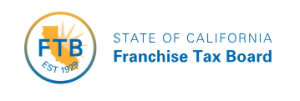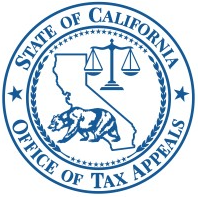SALT attorneys Zachary Atkins, Evan Hamme, Taylor Wolff and Breanna Zagorski will be presenting at the COST Pacific Northwest Regional State Tax Seminar on December 5.

SALT attorneys Zachary Atkins, Evan Hamme, Taylor Wolff and Breanna Zagorski will be presenting at the COST Pacific Northwest Regional State Tax Seminar on December 5.

The California Franchise Tax Board (FTB) announced it has initiated the formal rulemaking process to amend Regulation Section 25136-2, which governs the sourcing of receipts from services and intangible property. The proposed changes would apply to taxable years beginning on or after January 1, 2024. Continue Reading ›
Continue Reading ›
Pillsbury SALT attorneys Carley Roberts, Jeffrey Vesely, Craig Becker, Robert P. Merten III, Zachary Atkins, Evan Hamme and Aruna Chittiappa will present at this year’s SALT Workshop for Technology Companies on August 14 and 15.
Pillsbury SALT attorney Aruna Chittiappa will be presenting at NYU’s Introduction to State and Local Tax conference taking place July 22-23, 2024 in New York.
 The May Revision of California’s 2024-2025 state budget seeks to block refund claims, worth approximately $1.3 billion for historical tax years, and $200 million per year going forward, by codifying informal guidance recently rejected by the Office of Tax Appeal’s (OTA) decision in the Matter of the Appeal of Microsoft Corporation & Subsidiaries (Appeal of Microsoft) and by granting the Franchise Tax Board’s (FTB) quasi-legislative rulemaking authority exempt from the procedural protections afforded by the Administrative Procedure Act. The May Revision also proposes to suspend net operating loss (NOL) deductions and limit tax credit utilization to $5 million per year for tax years 2025-2027; however, the legislature proposes to apply the changes to tax years 2024-2026 instead.
The May Revision of California’s 2024-2025 state budget seeks to block refund claims, worth approximately $1.3 billion for historical tax years, and $200 million per year going forward, by codifying informal guidance recently rejected by the Office of Tax Appeal’s (OTA) decision in the Matter of the Appeal of Microsoft Corporation & Subsidiaries (Appeal of Microsoft) and by granting the Franchise Tax Board’s (FTB) quasi-legislative rulemaking authority exempt from the procedural protections afforded by the Administrative Procedure Act. The May Revision also proposes to suspend net operating loss (NOL) deductions and limit tax credit utilization to $5 million per year for tax years 2025-2027; however, the legislature proposes to apply the changes to tax years 2024-2026 instead.

Pillsbury SALT partner Robert P. Merten III will participate as an instructor in the 2024 Summer Tax Institute put on by the UC Davis School of Law.

Pillsbury SALT partner Evan Hamme will be presenting at COST’s 2024 Intermediate/Advanced State Income Tax School on May 20.
 The California Office of Tax Appeals (OTA), in a decision marked “not precedential” in the Matter of the Appeal of Microsoft Corporation & Subsidiaries, held 100 percent of repatriated dividends under the Tax Cuts and Jobs Act (TCJA) must be included in the taxpayer’s sales factor denominator.
The California Office of Tax Appeals (OTA), in a decision marked “not precedential” in the Matter of the Appeal of Microsoft Corporation & Subsidiaries, held 100 percent of repatriated dividends under the Tax Cuts and Jobs Act (TCJA) must be included in the taxpayer’s sales factor denominator.
 SALT partners Zachary Atkins and Evan Hamme will speak at COST’s upcoming Spring Conference.
SALT partners Zachary Atkins and Evan Hamme will speak at COST’s upcoming Spring Conference.

The California Franchise Tax Board (FTB), California Department of Tax and Fee Administration (CDTFA) and California Employment Development Department (EDD) announced tax relief for certain California counties affected by severe winter storms.